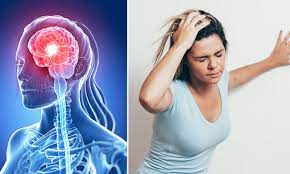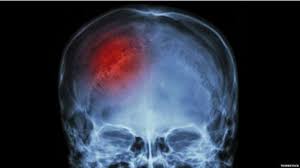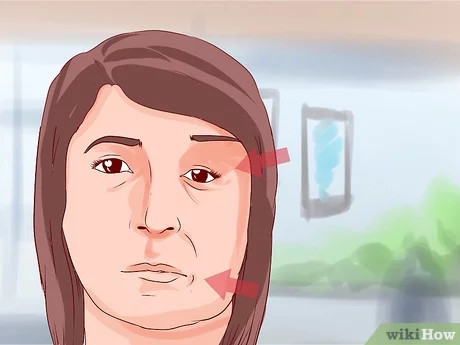The 13 Signs That Warn You That You Are Going To Suffer A Brain Spill

We all know that a stroke, the result of an interruption in blood flow to both sides of the brain, is a very serious, often fatal medical event. 20% of the population over 65 years of age has been affected by a stroke and there are more and more cases among those under 50 years of age.

For this reason, at the first symptoms of a spill, the most important thing is to act quickly and notify 112 immediately. Warning signs appear immediately and we must react just as immediately. Symptoms such as noticing that one side of the face 'droops', loss of strength or sensation on one side of the body, difficulty speaking or understanding, or vision disturbances can alert you to a stroke.
One of the best ways to avoid becoming a statistic is to identify the warning signs that you are going to have a stroke, so we share Best Life magazine's compilation of the 13 signs of stroke that everyone should know:
Severe headaches
Often confused with migraine, it is a symptom to watch for. "Although it is not very common, it can occur as a result of a brain hemorrhage," explains the American cardiologist, Sanjiv Patel. It is a very common condition among the population, but if the pain does not stop or is too continuous for several days, it is best to see a doctor.
Nausea
Another very common condition, especially if you have eaten bad food or get up after a night of excesses. But if you can't explain the cause with the naked eye, it could fall under the symptoms of a stroke, “due to a blocked artery or bleeding inside the skull,” Patel advises.

Hiccup
In addition to being very annoying, it may be warning you that you need to go for a checkup just in case. A study from the 'Journal of Neurology, Neurosurgery and Psychiatry' establishes that one of the causes of hiccups may well be neurological problems, so if it persists, it doesn't even let you sleep and you think it appears more times than it should, check it anyway Form with your trusted doctor.
dizziness
“A stroke to the back of the brain can cause serious balance problems and dizziness,” warns Jason Tarpley, a neurologist at St. John's Health Center in California. If they really appear without apparent cause and very repetitively, go immediately to the emergency room.
Chest pain
Women in particular should pay attention to any chest pain they may be experiencing. According to the Cedars-Sinai medical portal, chest pain, especially when accompanied by heart palpitations, can be a sign of a stroke.
breathing difficulties
Chest pain is not the only stroke symptom that reflects a heart attack. Cedars-Sinai notes that it's not uncommon to experience shortness of breath as well. Strokes and heart attacks are just as serious, so either way, this, and all the other symptoms identified on this list, need to be addressed immediately.
Confusion
Many people experience a loss of cognitive function as they age, which is completely normal. But if you suddenly notice some sudden confusion, you should worry. This temporary loss of executive function in the brain, known as vascular dementia, usually occurs when the organ is deprived of blood flow.
Memory loss
It is evident that also as we get older the function of remembering things begins to worsen, but if it is a sudden loss that is when you should worry. In any case, if you have serious suspicions that you may have a stroke, the best and most opportune thing is to see your GP immediately to clear up any doubts.
half body numbness
If you are experiencing numbness or weakness, specifically only on one side of your body, it is essential that you see a doctor as soon as possible. According to the American Stroke Association, numbness and one-sided weakness are a hallmark sign of a stroke. Also, it can tell you where the stroke happened: if your left side is weak, the stroke happened in the right side of your brain, and vice versa.
Facial paralysis

Facial paralysis or drooping is one of the classic signs of a stroke. That's because when a stroke occurs, it can cause damage to the nerves that control the facial muscles, resulting in pronounced sagging or lack of movement in the face.
Babbling
The American Stroke Association also lists slurred speech among the most common and notable symptoms of a stroke. It is usually caused by muscle weakness after a lack of blood flow to the brain, and can persist even after other symptoms subside.
Vision problems
According to The Stroke Foundation, approximately one-third of those who have strokes experience some form of vision loss, ranging from partial vision loss to complete blindness. Unfortunately, vision usually does not return to normal after a stroke, even with treatment.
behavior changes
Although strokes tend to cause changes in behavior, the details of these changes depend on which side of the brain the stroke occurred on. As the American Stroke Association notes, strokes on the left side of the brain cause "slow, cautious behavior," while strokes on the right side of the brain cause "quick, inquisitive behavior." Even after treatment, many of these behavior changes tend to remain as well.
